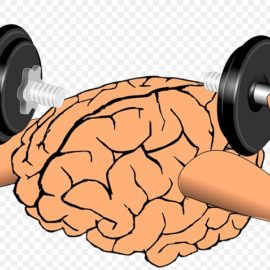

This article is an excerpt from the Shortform book guide to "Golf Is Not a Game of Perfect" by Bob Rotella. Shortform has the world's best summaries and analyses of books you should be reading.
Like this article? Sign up for a free trial here.
Do you want to improve your golf game? Why is your mental state almost as important as your form? How can you prevent a bad shot from ruining the rest of your game?
If you’ve ever talked yourself out of choosing the right club or agonized over whether to try to muscle it over a water hazard, Bob Rotella’s Golf Is Not a Game of Perfect is here to help. In this book, Rotella provides a framework for improving the mental side of your golf game.
Read below for a brief overview of Golf Is Not a Game of Perfect.
Golf Is Not a Game of Perfect by Bob Rotella
In Golf Is Not a Game of Perfect, Bob Rotella argues that success in golf depends upon adopting a winning mentality—not on making changes to your swing.
According to Rotella, most serious golfers have enough mechanical skill to achieve their goals, whether they’re weekend players or seasoned pros. Rotella argues that a golfer’s mentality is what determines whether they’ll be able to harness their mechanical skill to reach their goals.
Rotella is a professional golf coach whose clients have included major tournament champions such as Tom Kite, Davis Love III, Rory McIlroy, and more. Rotella is also a prolific author and a professor of psychology. In sharing his insights, Rotella aims to help golfers play more confidently, shoot lower scores, and reach their goals in the game of golf.
Choose the Right Thoughts
According to Rotella, the first step in taking control of your golf game is choosing the right thoughts. He argues that some thoughts help you play to the best of your ability, while others lead you to perform poorly.
Avoid Technical Thoughts
Specifically, Rotella notes that thinking too technically during a round of golf can cause you to hit poor shots. It’s fine to critique and adjust your swing during practice, but you shouldn’t try to do so during a real round. Golf swings are mechanically complicated, and even the most skilled players are unlikely to be able to accurately troubleshoot swing issues during the course of a single round. Trying to do so may lead you to overcompensate and take unnatural, uncomfortable swings that produce poor shots.
Instead, Rotella advises that you accept whatever swing you show up to the course with that day. You’ll perform more consistently by accepting flaws in your game and working around them rather than changing things up mid-round.
For example, if your tee shots always veer off slightly to the left, don’t try to correct this in the middle of the round. Instead, simply play around your swing by aiming slightly to the right on tee shots to balance out your natural leftward tendencies, hopefully landing your ball in the fairway. By contrast, if you try to correct your swing and aim to hit a perfectly straight tee shot, you’re likely to overcompensate and miss your shot to the right.
Envision Your Perfect Shot
In lieu of thinking about your swing, Rotella argues that you should choose to think about the kind of shots you’d like to hit. By envisioning your perfect shot you’ll put yourself in the right frame of mind to hit the ball well.
Envisioning the perfect shot starts when you choose a target. Rotella recommends that you choose a target that is as small and distinct as possible. According to Rotella, your mind functions best when presented with a small, clear focus. Additionally, when you choose a small target, you have a much greater margin for error than when you choose a large one. For instance, if you aim for a boulder that marks the dead center of the fairway, and you miss by five yards in any direction, you’ll still be in the fairway. However, if you decide to aim more generally for the entire fairway, missing the target even slightly to either side means you’ll end up in the rough.
Respond Positively to Adversity
In addition to avoiding technical thoughts, choose to respond positively when things don’t go your way on the golf course. Even the best golfers are virtually guaranteed to hit one or two weak shots during a round. Given that mistakes are inevitable, you’ll need to learn how to move on from them successfully.
Rotella notes that many golfers let bad shots derail them. Often, golfers will attribute bad shots to swing flaws and return to the kind of technical thinking that only leads to more bad shots. Or, golfers will become angry or distressed and fixate on the bad shot, distracting their focus from the next shot.
Instead of letting a few bad shots ruin your round, Rotella recommends that you develop strategies for learning to accept bad shots and move on. Specifically, try to lower your expectations, learn to laugh at your mistakes, and focus on enjoying playing the game.
One of the best ways of dealing with poor shots is by preemptively lowering your expectations before each round begins. While you should confidently believe that you’re capable of hitting great shots, if you expect every shot to be great, you’ll always be disappointed. Instead, you should try to accept the fact that poor shots are inevitable and expect to make a few mistakes each round. If you expect to occasionally hit a weak shot, you’ll feel less deflated when it happens and more prepared to respond to it.
When a bad shot happens in the middle of a round, laughing things off can help to diffuse your anger and anxiety about the shot. This can be an especially effective strategy if you’re golfing with friends or a familiar caddy. Turning to others who can help you find the humor in difficult moments can turn bad shots into great memories in addition to helping you get on with your round.
Lastly, when bad shots happen, remember that golf is a game and that the point of the game is to have fun. For most competitive golfers, there’s obviously more at stake than simply enjoying a round, but Rotella argues that competitive focus shouldn’t come at the cost of sheer enjoyment of the game. Rotella recommends that you remember the reasons you chose to pursue golf in the first place and remind yourself that if you’re able to take time to spend a day golfing, you’re in a lucky position. Remembering to have fun on the course can help put bad shots in perspective, enabling you to better move on from them.
Build Confidence to Make the Most of Your Skill
In addition to choosing the right thoughts during a round, develop and maintain confidence in your skill as a golfer. To build confidence, Rotella recommends that you set and commit to lofty goals, work to overcome your fear, and take advantage of selective memory.
Once developed, a high level of confidence will enable you to make better decisions and better swings. Confidence helps you avoid second-guessing and fully commit to your choices, thereby improving the quality of your decision-making. Confidence also enables you to think less while swinging and instead rely on the muscle memory and golf skill that you already possess.
Set Ambitious Goals and Commit
Rotella argues that the first step in building confidence is setting ambitious goals. When you set an ambitious goal, like winning a tournament, you’re saying that you believe you have what it takes to accomplish your goal. This inner affirmation of your potential helps to establish confidence and can help motivate you to continue to improve.
Once you’ve set your ambitious goals, commit yourself to a program of improvement. What this program looks like depends on your goals and your schedule. If you’re a professional athlete with no other major commitments, it might make sense to commit 40+ hours a week to improving your game. However, if you’re an amateur golfer with other commitments, you might only be able to devote a few hours to practice each week.
Regardless of how much time you’re able to devote to golf, focus on nothing but golf for the duration of your allotted practice time. It can be tempting to take a break from practice to scroll social media or answer emails, but allowing yourself to become distracted robs you of your practice time and can reduce your motivation.
Overcoming Fear
Once you’ve set your goals and committed yourself to working toward them, the next step in building confidence is overcoming fear. You must learn to overcome the fear of hitting bad shots and playing bad rounds because such fear can have a disastrous effect on your golf game. According to Rotella, fear disrupts your muscle memory, leading you to hit bad shots. In response to hitting these bad shots, your fear deepens, leading you to hit even more bad shots, and launching a vicious cycle that can ruin a round of golf.
Rotella notes that fear is distinct from nervous excitement. While fear is a mental struggle, nervous excitement refers to your body’s natural response to stressful situations. When you enter these situations, your body increases your heart rate and releases adrenaline in preparation for you to exert yourself. In some cases, the physical characteristics of nervous excitement can actually improve your game.
To avoid succumbing to fear during your rounds, Rotella recommends focusing on the processes of playing and improving and not the results of individual shots and rounds. When you’re focused too narrowly on the results of your shots, bad shots and round scores feel exceptionally demoralizing. However, when you zoom out and focus on your overall commitment to improving your game, bad shots will feel less significant and less painful when considered in the context of your overall upward trajectory.
For many golfers, the pressure of competing against others can be a source of fear and anxiety. The fear of being outperformed by a competitor can make it difficult to play well. The key to mitigating fear of competition is, once again, focusing on process and not results. Rotella notes that while your opponents in the context of a single round are the other golfers, in the long term, you compete against yourself.
Focus On Positive Memories to Build Confidence
As you continue building your confidence, choose to remember positive golf experiences while ignoring negative ones. Rotella argues that by remembering your best shots as you play and practice, you’ll be able to relax and play better, which in turn bolsters your confidence. Just as remembering good shots can help you play better, remembering bad shots can inspire fear, distract you, and lead you to play worse.
To take advantage of this phenomenon, take a moment to appreciate your good shots and attempt to commit them to memory. By the same token, move on quickly from bad shots, making use of Rotella’s strategies for responding to adversity–lowering expectations, laughing things off, and striving to enjoy the game.
Rotella notes that some clients have been confused by his advice regarding memory. Clients pointed out that by ignoring their bad shots while focusing on the good, they’d build confidence based on inaccurate information. However, according to Rotella, it doesn’t matter that selective memory is inaccurate because the point is to build confidence and play better, not to accurately remember previous rounds of golf.
Use Confidence to Access Intuition
According to Rotella, when you’ve built up your confidence, you’ll be able to use your intuition to make strong decisions in the game. Intuition refers to your mind’s ability to tap into your reservoir of skill and golf experience and use that information to rapidly determine the best course of action in a given situation. Your intuition presents you with your initial idea about how to approach a shot, and conscious re-evaluation of the situation produces second and third guesses.
When you’re playing with confidence, it’s easier to believe that your initial, intuitive plan for each shot is the best. As Rotella argues, this is usually the case, and by confidently following your intuition, you’ll choose better shots and shoot lower scores. However, when your confidence is low, your lack of belief in yourself can lead you to second-guess your plan for how to approach a shot. When you second-guess, you may end up choosing a weaker plan for your next shot. If you choose many suboptimal shots throughout the round, your score may increase by several strokes.
For example, imagine that you hit into a deep bunker just off the green. Based on your instincts, your first thought is to shoot straight for the hole, as you’re pretty confident in your sand wedge. However, as you prepare to hit the shot, your confidence falters, and you consider aiming for the front of the green to avoid accidentally overhitting the ball and rolling off the back of the green. After some waffling, you elect to shoot for the front of the green. During your swing, your uncertainty about the plan distracts you, causing you to hit a weak shot that doesn’t make it out of the bunker. If you had been confident enough to play intuitively, you would have shot for the hole, and even if you missed, you’d probably have at least gotten out of the bunker. Instead, lacking confidence, you chose a shot that cost you at least one stroke.
Play Pragmatically
Alongside your efforts to build confidence, Rotella recommends that you take a pragmatic approach to your play. Specifically, to elevate your game, focus on short shots and choose easy shots.
Focus on Approach Shots
Rotella argues that most of your practice time should be dedicated to improving your short game. While it’s tempting to focus on relatively flashy long irons and drives, the shots that will save you the most strokes over the course of the round are the shots you take near the green, from max-range wedge shots to chipping from the edge of the green, and everything in between. Rotella argues that improving your mechanics on these shots will improve your scores faster than any other course of practice.
While Rotella recommends that you spend a lot of time practicing short shots, he notes that it usually isn’t beneficial to spend a lot of time practicing putting, as he believes that putting is more mental than mechanical.
Select Easy Shots
In addition to pragmatically focusing on short shots, Rotella recommends that you choose easy shots whenever possible, as you’re likely to feel more confident and relaxed when you take low-difficulty shots, which increases the likelihood that you’ll be able to hit the ball well. By contrast, when you choose more difficult shots, your perception of the shot’s difficulty can cause your confidence to waver, which can negatively affect your swing.
For example, suppose you’re a long way from the hole on your second shot on a par four. You’re torn between wanting to play a conservative shot that sets you up for an easy chip on, or more riskily trying to aim for the green, which you know is on the edge of your maximum range. In this scenario, Rotella recommends you choose the setup shot, as it’s easier and will make you feel more confident. On the other hand, if you aim for the riskier strategy and shoot for the green, your anxiety about the shot’s difficulty might lead you to take a bad swing.

———End of Preview———
Like what you just read? Read the rest of the world's best book summary and analysis of Bob Rotella's "Golf Is Not a Game of Perfect" at Shortform.
Here's what you'll find in our full Golf Is Not a Game of Perfect summary:
- A framework for improving the mental side of your golf game
- Why thoughts, confidence, and strategy are more important than your swing
- Techniques for choosing the right thoughts, goals, and shots






